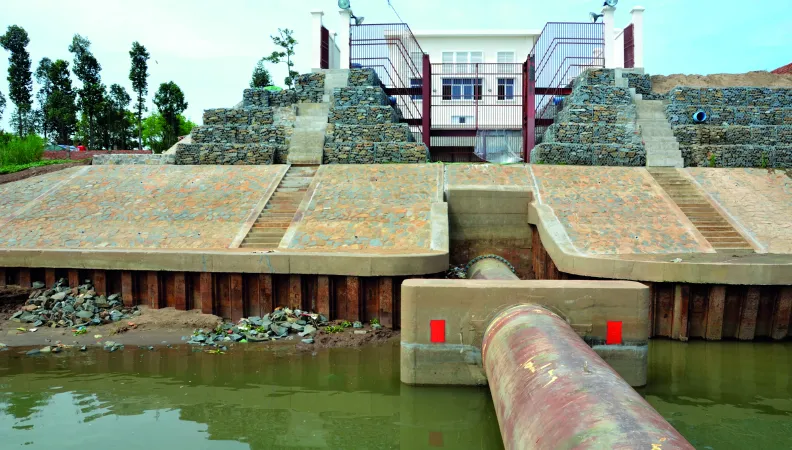Share the page
Project to build the Bakheng water purification plant and expand the drinking water network in Phnom Penh
Project
This project is carried out with the support of the European Union



-
Project start date
-
Status
Ongoing
-
Project end date
-
-
Project duration
-
3 ans
-
AFD financing amount
-
177 300 000 €
-
Country and region
-
Location
-
Phnom Penh
-
Type of financing
-
Beneficiaries
-
Phnom Penh Water Supply Authority (PPWSA), Royal Government of Cambodia
This project is carried out with the support of the European Union

The content of this project information sheet falls under the sole responsibility of the AFD and does not necessarily reflect the opinions of the European Union.
This project, undertaken by the Phnom Penh Water Supply Authority (PPWSA), will contribute to the improvement of the water service in the Phnom Penh conurbation, particularly in peripheral districts.
Context
The PPWSA has implemented a sustained investment programme since the early 2000s. The production volume objectives of the Master Plan 2005–2020 were achieved as early as 2016, with a total capacity of 560,000 m3 per day. The third Master Plan covering the period 2016–2030 foresees a doubling of demand and number of connections (1 million m3 per day in 2030), in parallel with the expansion of the distribution networks.
Description
As part of this project, which will cost US$247 million in total, AFD will grant an €85 million sovereign loan for the first phase of Bakheng station construction and the water network expansion. With a total capacity of 390,000 m3 per day, this station will meet the demand for water in the capital until 2025.
AFD and the PPWSA are co-financing this first phase with the European Investment Bank (EIB), for which this will be the first operation in Cambodia, with a sovereign loan of US$100 million. These loans will be supplemented by a grant from the European Union (AIF) of US$15 million, which will enable the purchase of pipes installed in areas where the most vulnerable population of the capital live.
Impacts
- Economic: the project will enable 511,000 people to connect to the network. Their water bills will be reduced to households that would otherwise have continued to buy water from private resellers at rates three times higher than the average price of PPWSA.
- Social: this project makes the existing network denser and expands it to disadvantaged peripheral districts not yet covered by the system.
- Health: improved water quality has a positive effect on the health of population, allowing a reduction in health expenditure by 25%.


